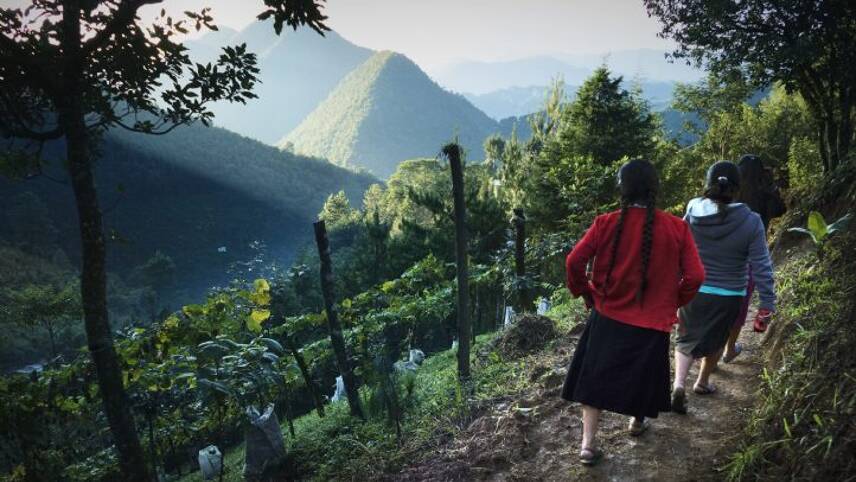Register for free and continue reading
Join our growing army of changemakers and get unlimited access to our premium content

Under the commitment
Under the pledge, the company, which is owned by Paris-based beverage firm Pernod Ricard, will only source coffee from farm clusters which are generating environmental, social and economic benefits for the local area.
In order to ensure its suppliers meet these criteria, Kahlua will fund educational courses and training sessions around best-practice sustainability actions. The environment-themed sessions will focus on resource and water-efficient farming techniques, while courses on social sustainability will include lessons on issues such as gender equality and child labour.
The economics training, meanwhile, will provide farmers with the tools and methods needed to increase efficiency, sustainability and crop yields. To ensure these practices lead to improved local economies from the start of the programme, Kahlua has pledged to pay farmers premium prices for coffee produced to its sustainability standards.
“We recognise that the way we consume, do business and ultimately live has to change,” Kahlua’s director of sustainable development Billy King said.
“At Kahlua, we believe that the quality and character of our product comes from the land where the ingredients are grown, so we are committed to nurturing that terroir and its biodiversity. With this programme, we have the opportunity to engage with communities we rely on for our ingredients and work together to ensure a strong and more sustainable future for us all.”
Kahlua’s progress towards its 2022 goal will be monitored by Mexico City-based NGO Fondo Para La Paz, which advocates for sustainable development across the Veracruz region, where Kahlua sources all of its coffee.
The launch of the target comes as Pernod Ricard, which owns 30 beverage brands, redesigns its sustainability strategy in a bid to alingn the aims of the UN’s Sustainable Development Goals (SDGs) with its own actions. Its current Sustainability and Responsibility strategy is split into four pillars – responsible drinking, employee empowerment, environmental protection and community engagement.
The overall aim of the target is to ensure that Kahlua can generate a long-term increase in coffee yields without harming the environment or the communities living within its supply chain.
Wake up and smell the coffee
Over the past four decades, coffee has become one of the most popular drinks in Europe and the US, with around three in ten UK residents and four in ten US citizens drinking at least one cup each day.
Overall, global coffee consumption is estimated to have doubled since 1980. This growing demand, according to Kahlua, has led to unsustainable decisions being made in order to maximise yields and profits.
One such decision is the tendency to avoid growing coffee under tree canopies – a traditional farming method which prevents topsoil erosion, reduces the need for pesticides and fertilisers and preserves habitats for wildlife. According to WWF, the majority of commercial coffee farmers now use a ‘sun cultivation’ growing method instead, planting coffee plants in uncovered plantations and using fertiliser and pesticides.
As a consequence, 2.5 million acres of forest are estimated have been cleared to make way for coffee farms in Central America alone. WWF claims that 37 of the 50 nations with the world’s worst deforestation rates play home to large coffee-growing regions.
The growing demand for coffee has also proven a challenge to efforts to promote social and financial equality in developing nations. The average coffee farmer earns just £1.37 each day, according to Fairtrade, meaning they take home just 10% of the retail price of their commodities.
Sarah George


Please login or Register to leave a comment.